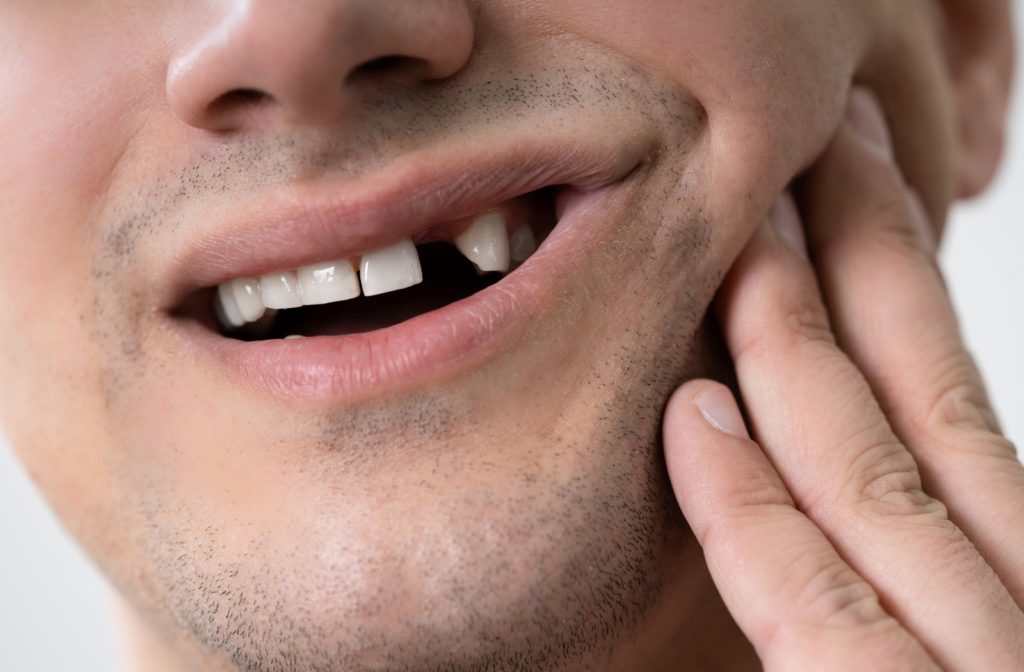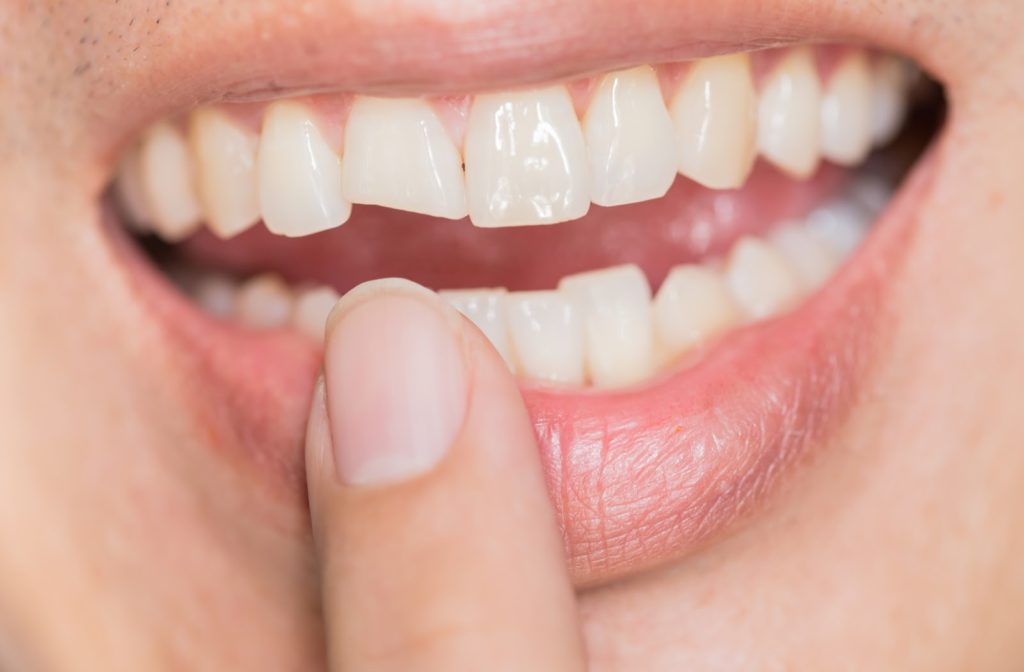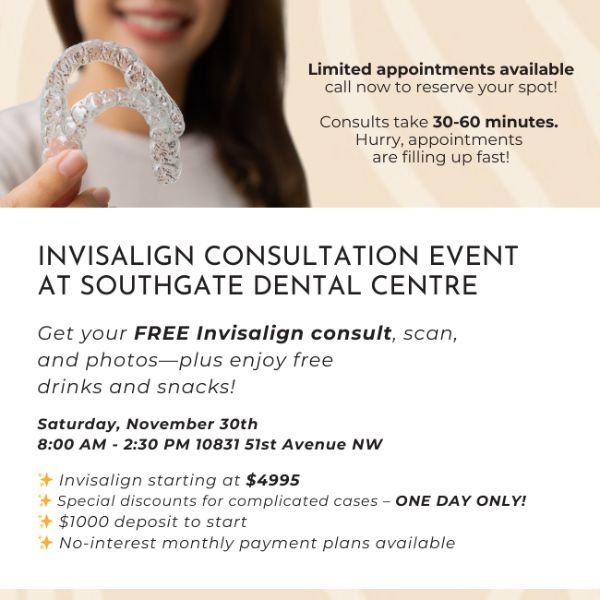No one wants to visit the dentist outside of their scheduled exams, but accidents can happen at any time. Chipped, broken, and knocked-out teeth are all common dental emergencies, but what should you do if you experience one yourself?
The treatment you need depends on the severity of your injury, but you should always receive an assessment from your dentist. Continue reading to learn more about what to do if you have a broken tooth.
What to Do if You Break a Tooth?
Our teeth are strong, but enough pressure or wear can cause them to crack, break, or dislodge. Some cracks and breaks are small and don’t need dental attention but don’t decide this yourself.
No matter how insignificant a crack or break may seem, visit your dentist as soon as you can for an assessment. If you suffer a broken tooth, follow these steps, and get to your dentist’s office:
Clean the Area & Pick Up Any Missing Pieces
After you’ve chipped or broken a tooth, rinse your mouth with warm water right away to clean the affected area. Apply pressure with a clean towel or some gauze to stop any bleeding, and assess the overall damage.
If you’re noticing there are any pieces of your tooth missing, pick them up. If you can find all of the missing pieces, wrap them in wet gauze and bring them with you to your dental office.
Relieve Any Pain & Swelling
After you clean your mouth with warm water and stop any bleeding, focus on reducing any swelling. Apply cold compresses to your cheek outside of the affected area every couple of minutes.
Wrap ice cubes or a cold pack in a towel, and apply to your cheek for around 10 minutes. The ice can help reduce:
- Redness
- Pain
- Swelling
You don’t need to settle on ice for pain relief. Over-the-counter pain medications, we recommend acetaminophen (Tylenol) or ibuprofen (Advil) which can help keep you comfortable until you can see your dentist.
Make sure to only use the proper dosage for any medications. Clove oil placed on the tooth can help by slightly numbing the painful area.
Protect Your Tooth & Mouth Until Treatment
Depending on how bad the break is, your tooth may have a sharp edge. You don’t want to accidentally cut your tongue, so make sure to cover any jagged edges. Use a piece of wax paraffin or sugarless gum to avoid cuts to your tongue, lip, or cheek.
Visit Your Dentist ASAP
A tooth fracture may not be a dental emergency, but you should have an assessment as soon as possible. Treatment depends on the severity of the injury, so never assume your tooth will be fine until a professional has seen it.
Breaks and cracks can happen to anyone, but there is always the risk of tooth dislodgement. Unlike a cracked tooth, a completely knocked out tooth needs immediate dental attention. If this happens to you, get to your dentist or an emergency room so you can have your tooth reimplanted.

What to Do if You Lose a Tooth
If you lose a tooth, there is limited time for you to have your tooth reimplanted. Visiting your dentist or an emergency room as quickly as possible can save your tooth. Follow these steps, and see a medical professional right away:
- Handle your tooth by the top or crown only; never touch the roots.
- Inspect the crown & root for any possible fractures or missing pieces.
- If there is any dirt or debris, rinse your tooth for 10 seconds in a bowl of lukewarm tap water. Don’t hold your tooth under running water; too much water can harm the tooth’s roots.
- Try to place your tooth back in its socket. If it doesn’t fit, bite down slowly & gently on a moist piece of paper towel to keep the tooth in place. Hold your tooth in this position until you see your dentist. If you cannot reinsert the tooth, place it in a container of cold milk or your saliva.
- Get to your dentist or an emergency room right away for treatment.
Whether your tooth is cracked, broken, or knocked out, follow-up care is important for your oral health. To help protect your treated tooth and have a smooth recovery, make sure to attend every follow-up appointment and follow your dentist’s instructions.
Take Care of Your Teeth
While treatment depends on the severity of your injury, have your tooth assessed as soon as possible to help protect your oral health. No matter the severity, your dentist will work with you to treat any damage to your tooth and reduce any pain or discomfort. If you suffer any damage to a tooth, contact your dentist as soon as possible and request an appointment. If you lose a tooth, visit your dentist or an emergency room right away and follow the correct steps to save your tooth.



